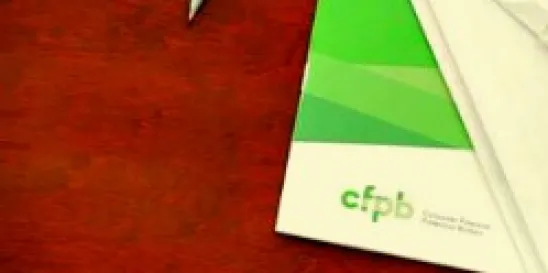In a move that could reshape the landscape of consumer finance, on Jan. 17, 2024, the Consumer Financial Protection Bureau (CFPB) proposed a new rule that aims to redefine overdraft fees as credit products subject to TILA. This proposal is part of the CFPB’s ongoing efforts to curb what it identifies as “junk fees” and enhance transparency in consumer financial products.
If finalized in its present form, the proposed rule would eliminate a current exemption to TILA that broadly allows financial institutions to streamline honoring checks of their depositors who have inadvertently overdrawn their accounts.
Background
In 1968, Congress enacted TILA. In 1969, the Federal Reserve Board wrote rules to implement the new law, which generally required lenders to disclose the cost of credit to a borrower. Many families received and sent checks through the mail at the time and needed more certainty about when their deposits and withdrawals would clear. When a bank processes a check transaction, and the consumer doesn’t have funds in the account to cover such payment, the bank may cover the difference and honor payment of the check. The Federal Reserve Board exempted TILA requirements if the bank honored a check when their depositor “inadvertently” overdrew their account.
Traditionally, overdraft fees have been treated as service charges by financial institutions. However, the CFPB’s proposed rule seeks to categorize these fees under TILA, thereby imposing on large financial institutions the obligation to provide detailed disclosures and obtain explicit consumer consent akin to unsecured consumer loans and lines of credit.
Potential Implications
- Legal Challenges: Large financial institutions may challenge the rule, arguing it oversteps the CFPB’s regulatory authority or creates undue burdens. The success of such a challenge would likely hinge, in part, on the Supreme Court’s rulings in Consumer Financial Protection Bureau v. Community Financial Services Association of America, Limited, challenging the constitutionality of the CFPB’s funding structure, and Loper Bright Enterprises v. Raimondo, Relentless, Inc. v. Department of Commerce potentially overruling Chevron, which grants deference to an agency’s reasonable interpretation of an ambiguous statute.
- Consumer Credit Reporting: Treating overdrafts as credit under TILA may necessitate their inclusion in consumer credit reports, impacting credit scores and borrowing capacity.
- State Law Interactions: The reclassification could activate additional requirements under state consumer credit laws, complicating compliance efforts.
.
Takeaways
The proposed rule represents a pivotal development in consumer finance regulation. Large financial institutions should consider initiating an immediate and thorough evaluation of their overdraft fee structures and policies. This step would ensure alignment with the proposed rule’s exclusion (breakeven standard or benchmark fee) or TILA’s enhanced disclosure requirements and consumer consent mandates. Additionally, financial institutions should prepare for significant operational changes, including modifications to IT systems, customer service protocols, and staff training programs to adapt to these possible new regulatory demands. The potential inclusion of overdrafts in consumer credit reports necessitates a strategic approach to maintain compliance with applicable credit reporting laws. Covered financial institutions under the rule also must be aware of the additional complexities involving applicable state consumer credit laws, which this proposed rule could further complicate.
Equally important is the development of a comprehensive client communication strategy. If the proposed rule is finalized in its present form, covered financial institutions should proactively inform and educate customers about the impending changes to overdraft services. Risk management frameworks should also be updated to reflect these potential regulatory changes, and contingency plans should be established to address various scenarios, including increased enforcement scrutiny in this area.




 />i
/>i

